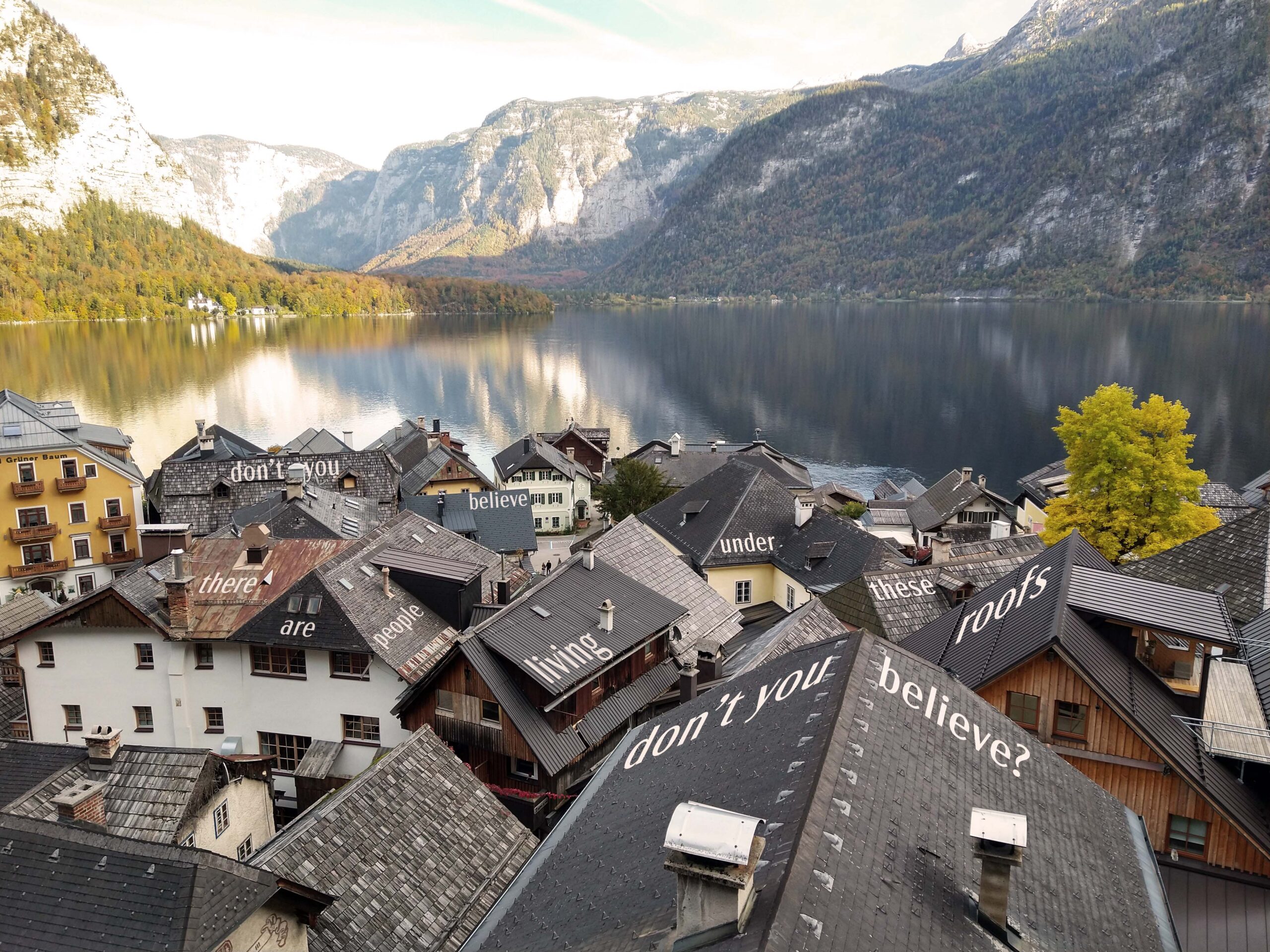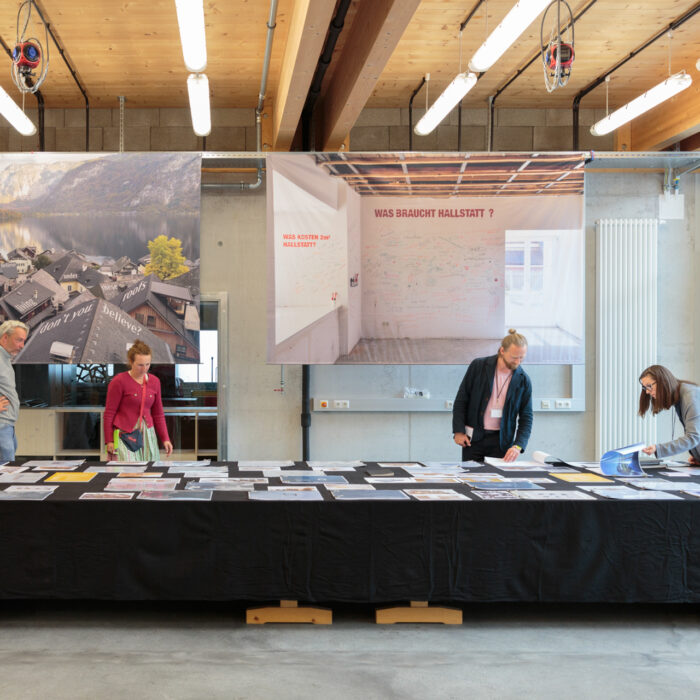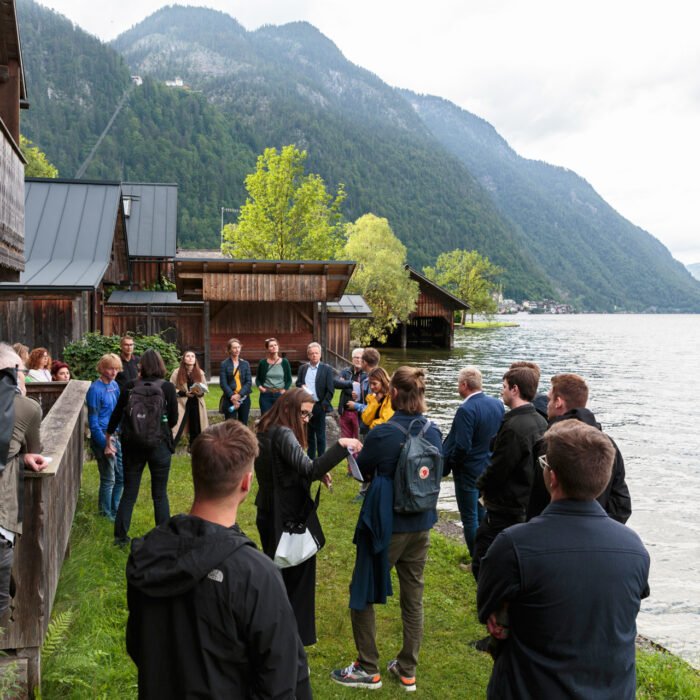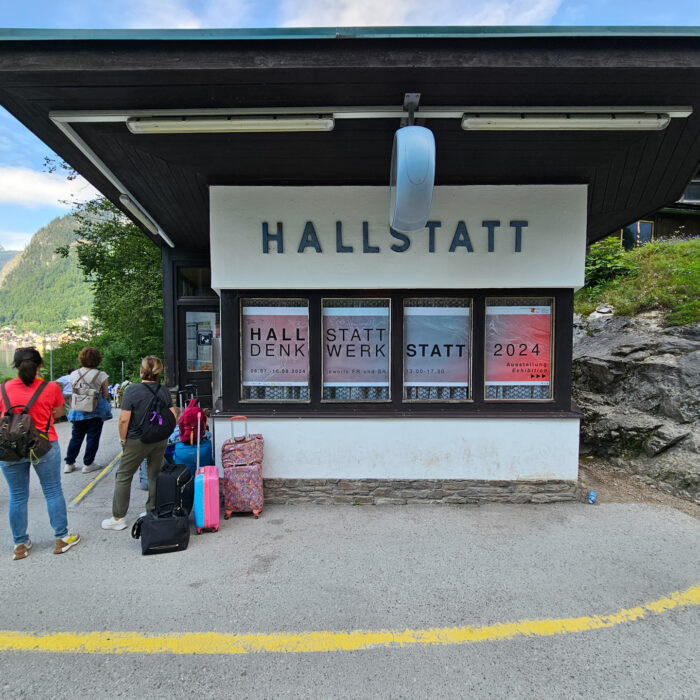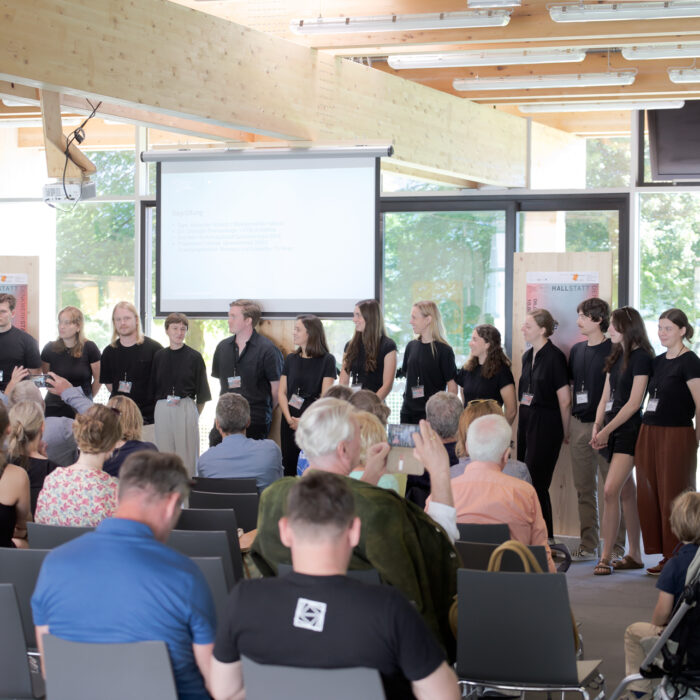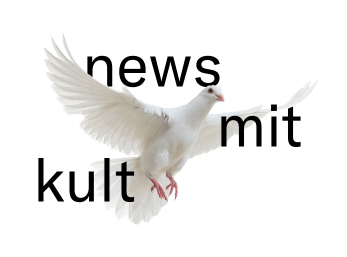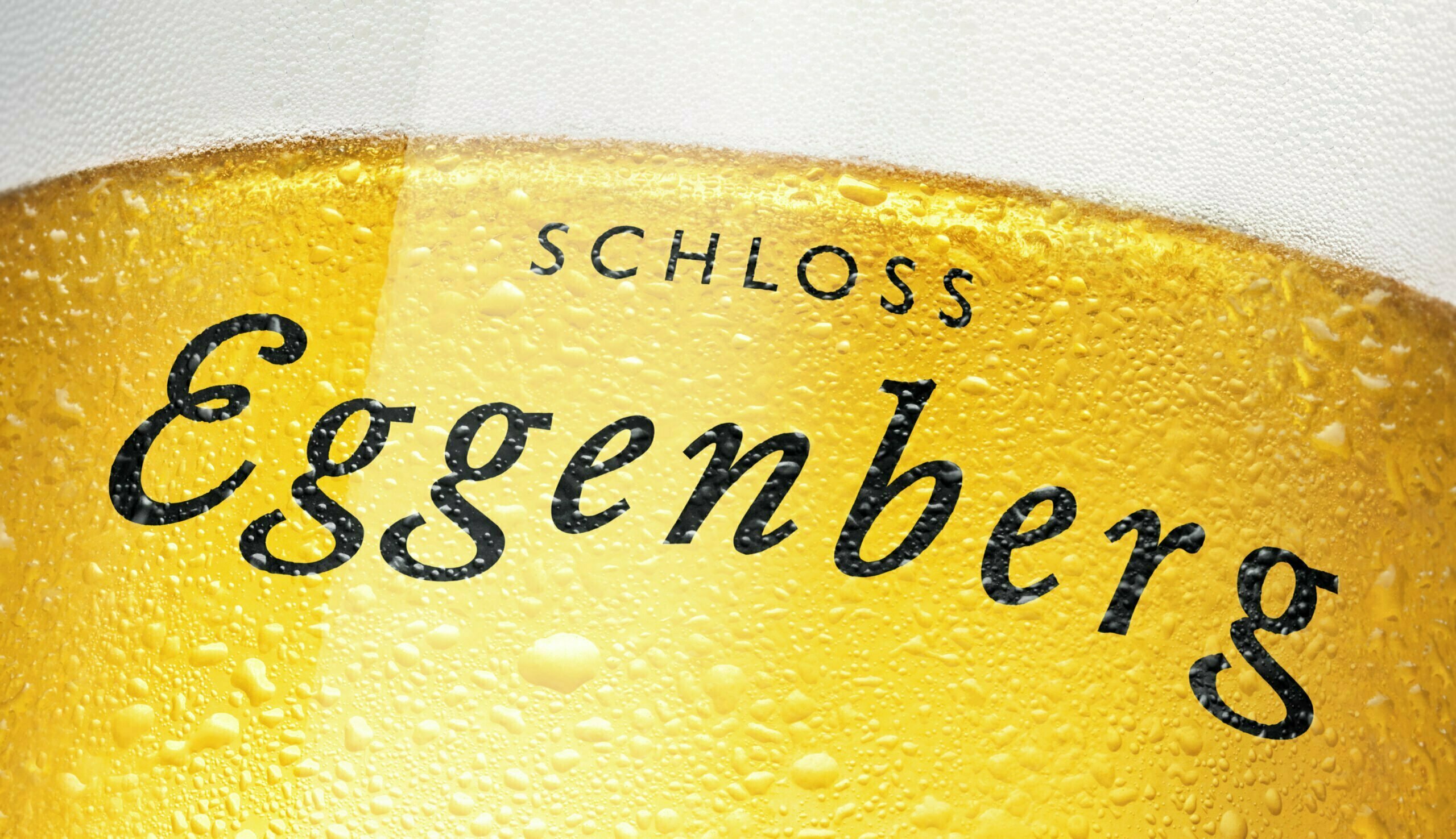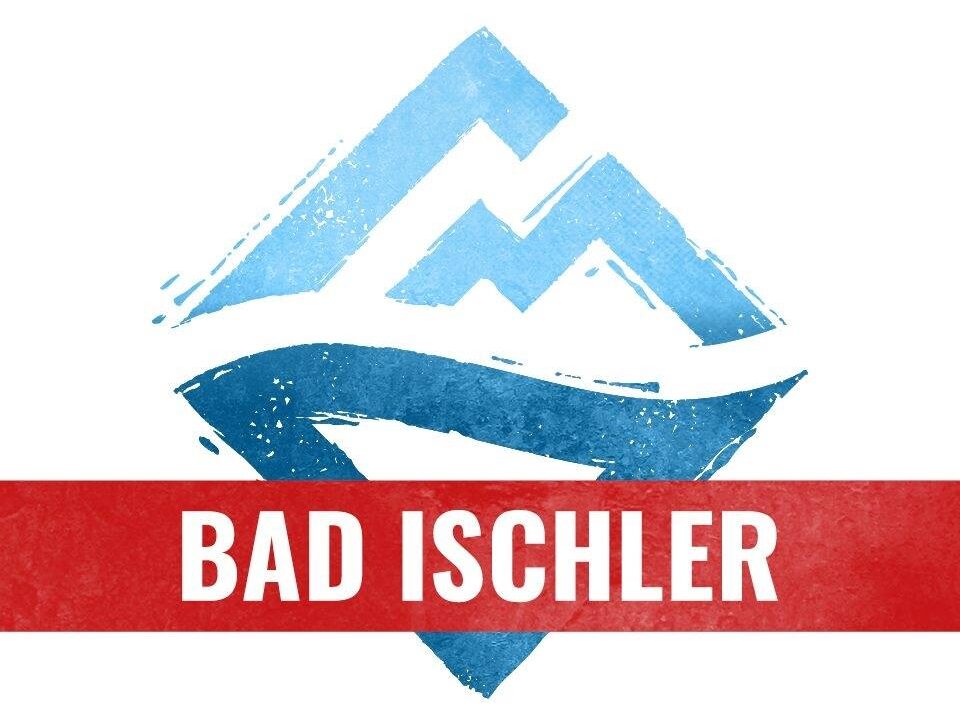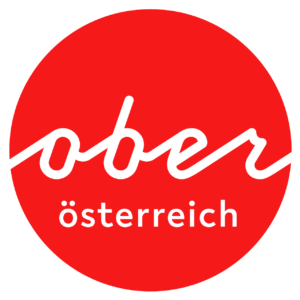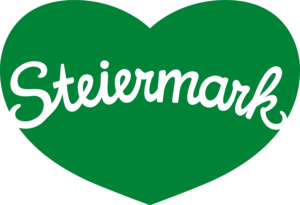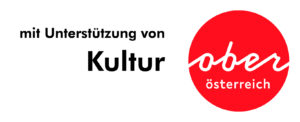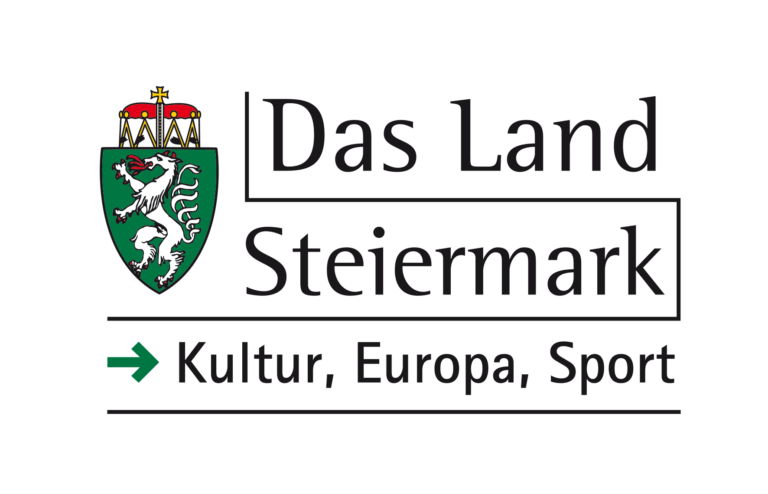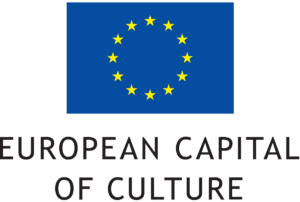Hallstatt and the Salzkammergut region play a special role beyond the much-discussed topic of overtourism in the question of housing needs and living environments of different user groups (residents, tourists, schoolchildren, etc.), which sometimes requires new and innovative perspectives and impulses. In addition, parameters such as new working environments, digitalisation, mobility issues, dealing with existing buildings/vacant properties, the consequences of the Covid-19 pandemic and the resulting new role of rural areas cover a broad spectrum of future issues.
Since 2020, the “Hallstatt_Denkwerkstatt 2024” project has been part of the applied research project “Living in Extremis: Hallstatt – Salzkammergut 2024” at the Department of Housing and Design of the Faculty of Architecture and Spatial Planning at TU Wien. The multi-part dialogue format developed step by step until 2024: the building blocks include teaching events, on-site dialogue events and a publication. Student projects from teaching and research will be discussed in Hallstatt with residents, experts and interested parties. The findings, theses and impulses are incorporated into the university discourse and the on-site formats. The next generation of young people is thus engaging in a dialogue with the region on the housing and living issues of the future and researching and developing new ideas, perspectives and approaches with the residents.
Hallstatt railway station, as a transit and previously vacant site, will become a creative laboratory for the think tank.
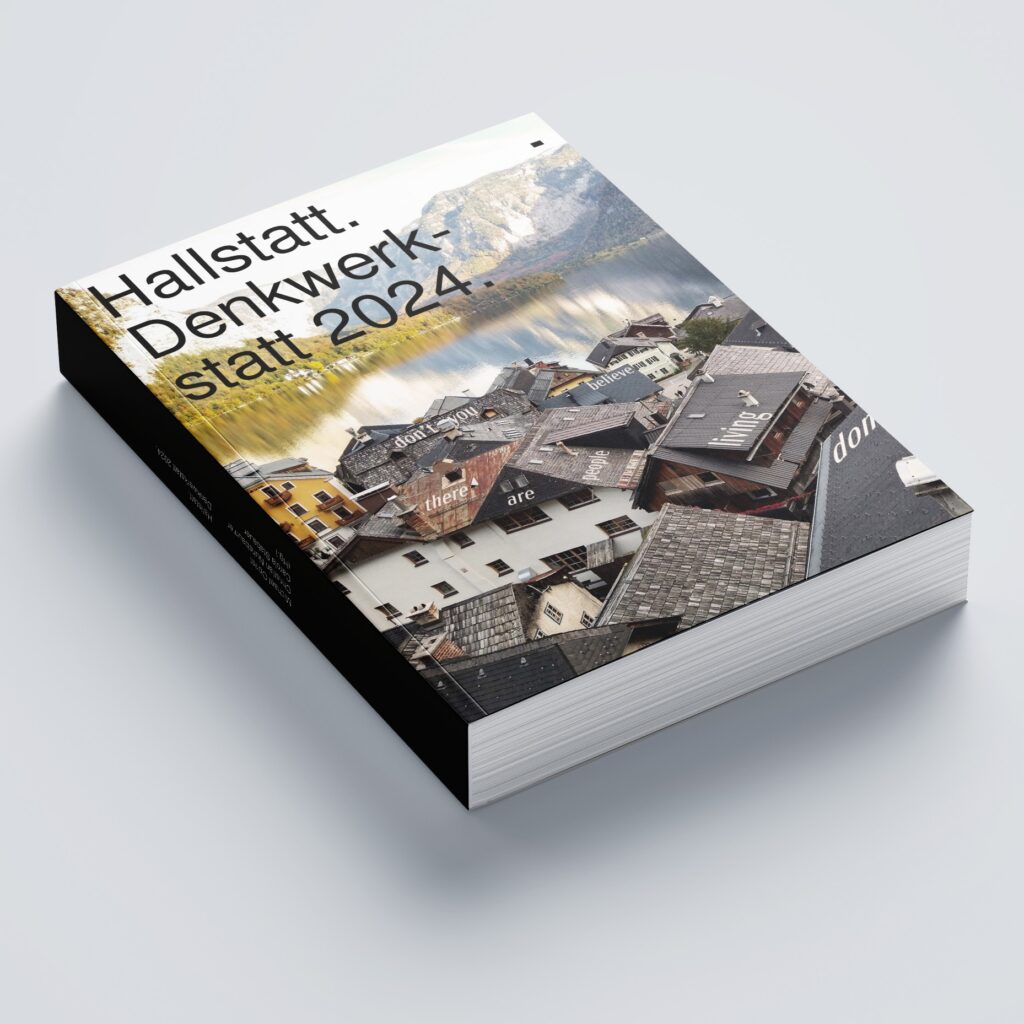
Hallstatt. Denkwerkstatt 2024.
Publication
Editors: Michael Obrist, Christian Nuhsbaumer, Carola Stabauer
With contributions by: Elisabeth Schweeger, Alexander Scheutz, Tex Rubinowitz, Eva Mair, Maik Novotny, Anna Moser, Michael Hager, Friedrich Idam, Andreas Reiter, Iris Andraschek, Hubert Lobnig, Patricia Eder and students of the TU Vienna
Design: Sinah Hackenberg, Antoine Bamberg, Fabian Strippel, Christian Nuhsbaumer
Self-published by: Research Department Housing and Design, TU Vienna
2023, 15.5 x 21.5 cm, paperback, 351 pages
ISBN 978-3-902422-55-2
more information → wohnbau.tuwien.ac.at
Photo: Housing and Design, TU Vienna
